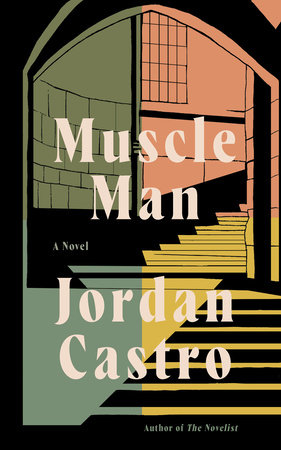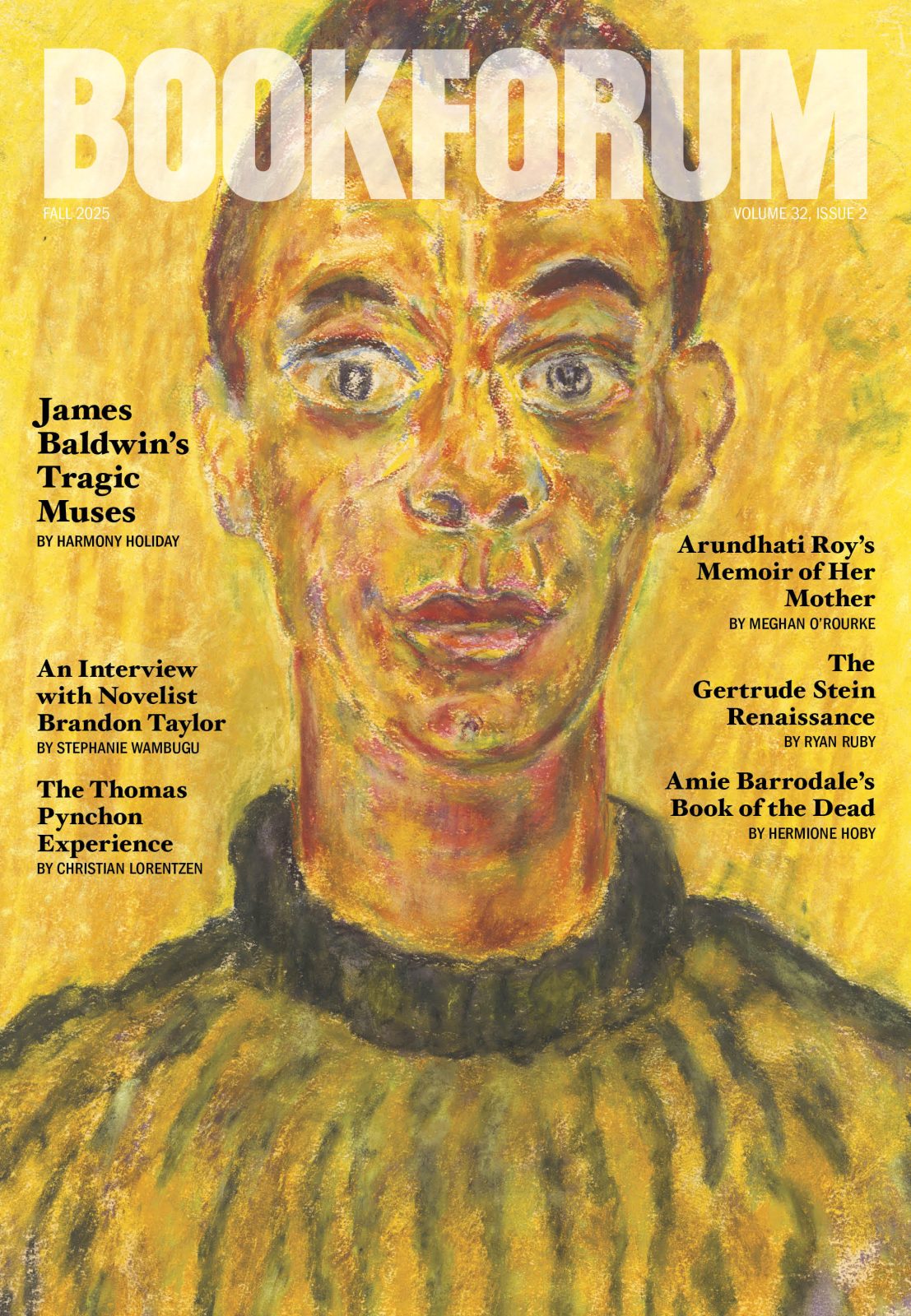
JORDAN CASTRO FIRST CAME across my radar in 2011 when he live streamed himself “earnestly” attempting to detach his penis from his body with his bare hands. At the time, Castro was an eighteen-year-old poet and contributor to HTMLGiant, the blog/discussion board where the alt-lit scene bloomed. I remember watching through cracked fingers, unsure if I was witnessing performance art or bona fide self-mutilation.
Commenters on HTMLGiant weren’t certain either. Some expressed concern for Castro’s mental health. Most were convinced he was trolling. A pre-famous Roxane Gay wrote, “We’re not his parents,” but suggested calling 911 if “things get messy.” Castro’s friend and mentor Tao Lin felt “99.9 percent certain jordan would earnestly try to rip it off, and that it would not be ripped off.” Someone named deadgod pointed out that a truly “earnest try” was unlikely to fail. By live stream’s end, the appendage remained intact.
When Castro’s debut novel, The Novelist, appeared in 2022, I scoured reviews for mentions of this performance, only to find that it had been either forgotten or politely ignored. I was surprised. While I don’t generally support combing an artist’s juvenilia for insights into his mature work, the parallels between the novel and the performance seemed obvious. For one, both explored body horror, albeit to different degrees. More significantly, both felt bracketed by invisible air quotes, animated by their resistance to interpretation. Was the live stream a cry for help? A commentary on the relationship between blogging and exhibitionism? A mock renunciation of male privilege? A real renunciation? By the same token, how seriously were we meant to take the musings of an aspiring novelist in a novel called The Novelist when he offered such deadpan profundities as “The best poops were always on the cusp of diarrhea,” and “For all of the ways in which women were better than men, we would always have our ability to pee on things”?
The Novelist’s conceit is that its unnamed narrator becomes so consumed with his morning rituals—brewing tea, checking Twitter and Instagram, wiping his ass—that he hardly manages to do any writing. Very funny in parts, the book pays direct homage to two novels, Nicholson Baker’s The Mezzanine and Thomas Bernhard’s Woodcutters. Like Baker’s narrator, Castro’s delights in his mind’s digressive wanderings. He’s also a Bernhard-ian crank, convinced that social media and online literary culture have ruined him for writing, and ruined literature in general. But in the novel’s final run-up, Castro manages a seemingly impossible tonal shift: what begins as farce becomes humane and tenderhearted. The air quotes dissipate. The book ends on an unexpected moment of grace.
At first glance, Castro’s sophomore effort, Muscle Man, appears to be a more conventional novel. For one thing, its protagonist has a name, Harold. And unlike the titular novelist, Harold doesn’t follow the writer Jordan Castro’s Twitter feed, or email with “Li,” the protagonist of Tao Lin’s autofictional Leave Society. Harold is an associate professor of literature at Shephard College, a liberal arts school in the “northern-most part of the South.” What he does do, for most of Muscle Man’s 260 pages, is wander around campus in a silent rage, reflecting on his grievances. Later, he goes to the gym. Though certain preoccupations remain—the male body, the debasement of intellectual life in America—Castro has abandoned metafictional games in favor of a densely interior character study that proves to be both riskier and more cryptic than his debut.
The book begins with Harold arriving at Dawes Hall twenty minutes early for a faculty meeting. He finds the staff fridge empty, prompting a lament on the surfeit of empty fridges on campus. He has similar objections to nearly every aspect of Shephard: the furniture feels fake, the ceilings are too low, the architecture is aesthetically inconsistent. Further, his colleagues are grotesque, his students constantly miss class and don’t even email to ask for makeup assignments, and everyone eats too much microwaved food. The whole college is “teeming with a kind of less-than-half-brained-stupidity.”
Harold, by contrast, is a musclemaxxing gym rat who fantasizes about starting a YouTube channel called “Lifterature.” He thinks the school’s football players are smarter than the faculty, and he himself is in the midst of a hypertrophy program that he hopes will leave him shredded enough to dominate his protein-deficient colleagues. First, he needs something to eat. Roaming around Dawes in a half-starved daze, Harold sees what appears to be a glinting object—maybe a knife?—in the outside pocket of a student’s backpack. He follows that student, then steals the backpack when the student puts it down.
Mysteriously, Harold does not open the backpack. Instead, he brings it to the empty meeting room, where he worries about being caught stealing, and recalls an awkward interaction with his colleague Dolly. Harold imagines being on a podcast discussing Dolly. She is, he believes, an avatar for everything that’s wrong with academia and, possibly, America:
Dolly grew up in the South, Harold thought-talked frantically, and she presents herself as being from a small Southern town, but in reality she is a middling urban elite disguised as a Southerner. Dolly presents herself as having been from a small Southern town, he thought-talked, when in reality she grew up in the large coastal city of her heart and her brain. She has none of the same beliefs as the people she grew up with, none of the same ideas or respect for tradition; she has no understanding of the customs or values of her people; she did not vote for their president and she does not worship their god. In short, Harold thought-talked, convinced now that she was behind him, Dolly grew up hating her environment and the people around her; she grew up hating everything they loved and she set out in life—made it her mission in life—to destroy them.
If it’s not obvious, Harold is a misanthrope, more Dostoyevsky’s Underground Man than Baker’s mildly disaffected mall-walker. There’s also a hint of David Foster Wallace in the way Castro offsets highbrow references (Schopenhauer, Nietzsche, Montaigne) with colloquial speech (e.g. “a kind of less-than-half-brained stupidity”). At times Harold sounds Trump-ish, such as when he suggests that the reconstructed South “wasn’t haunted by an evil spirit, but by a loser spirit.” But Bernhard is still Castro’s presiding influence, and like Bernhard’s misanthropes, Harold is redeemed by the targeted precision of his disdain. Woke academia may be low-hanging fruit, but Castro avoids caricature by nailing the specifics: a “MENTAL HEALTH, MENTAL WEALTH” poster, or the mass emails from [email protected] that treat campus crimes—including a stabbing—as opportunities for building community.
Harold’s self-righteousness might grate if Castro didn’t undermine it by tormenting him with minor humiliations. An Übermensch in his own mind, Harold’s actually an awkward mumbler, haloed in dandruff. When he makes a joke in a faculty meeting, nobody laughs. Later, accidental eye contact with a woman at the gym sends him into a panic spiral. Even in his fantasies, Harold gets brought down a peg—the host of the imaginary podcast loses interest halfway through his rant about Dolly.
Harold entered academia with naive faith in the moral purpose of higher education. Muscle Man is the record of his disillusion, which has driven him to hallucinatory madness. Wandering the halls, he sees “limbs stretched over everything like unspooled yarn, mouths and walls making the same sad sound, a kind of scream-yawn, obliteration song—bodies marching, leaderless army—trampling Harold, crushing him into a sticky dehydrated dust.”
The novel’s second half takes place at the gym, Harold’s secular cathedral where one might transubstantiate from dust back to Übermensch. In an apparent case of Freudian sublimation, Harold is convinced that “the pump” is superior to orgasm, a mystical experience akin to rebirth in which “the soul becomes engorged” and everything opens into “a new and wondrous layer of itself.” The problem is that Harold’s too neurotic to truly quiet his mind and transcend. When he attempts to set a personal deadlift record, he self-sabotages by obsessing over the prospect of failure. More troublingly, women have been surreptitiously filming oglers at the gym and posting the evidence to social media. To Harold’s dismay, the gym risks becoming an extension of the campus, yet another sacred space suffused with an air of paranoia.
Harold did his PhD on novels about “exceptional men in societies that punished them,” the thesis of which is that “societies, particularly in the West, existed solely to keep exceptional men from living out their destiny.” He also wrote a novel about an ancient warrior dropped into contemporary America. Harold is miffed by critics who read it as satire about the “myth” of the exceptional man against society. Castro seems to be warning the reader not to make a similar error of interpretation regarding Muscle Man. And yet the text continually opens itself to this very interpretation by reminding us of how unexceptional Harold is. His worldview might be heterodox on campus, but it’s prevalent within the “manosphere,” the loose constellation of podcasts and online forums aiming to reclaim masculinity from woke culture. Ultimately, Harold’s less Übermensch than red-pilled everyman: an incel who loves YouTube, tracks his body-fat percentage, fears women, and pumps iron as the sole, ineffectual outlet for his horniness and rage. The novel’s twist ending suggests he’s spineless to boot, a guy so desperate for approval that he’d sell out his principles for entry into a cohort of people he hates.
But novels aren’t op-eds, and Castro has cleverly engineered Muscle Man to let him have it both ways: an impassioned jeremiad against contemporary mores contained within a send-up of itself. Readers may find Harold repulsive, but this too is by design. At one point, Harold reflects that “in literature, as in life,” we seek out identifiable characters, only to recoil when their failings cut close to the bone. In other words, there’s an angry muscle man inside us all.
Adam Wilson is the author of four books, including the forthcoming novel Fail Sons (Soho Press).
